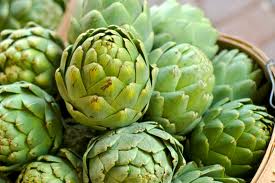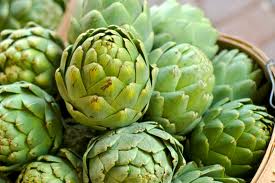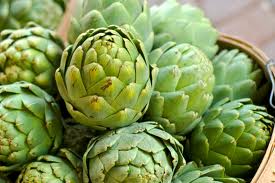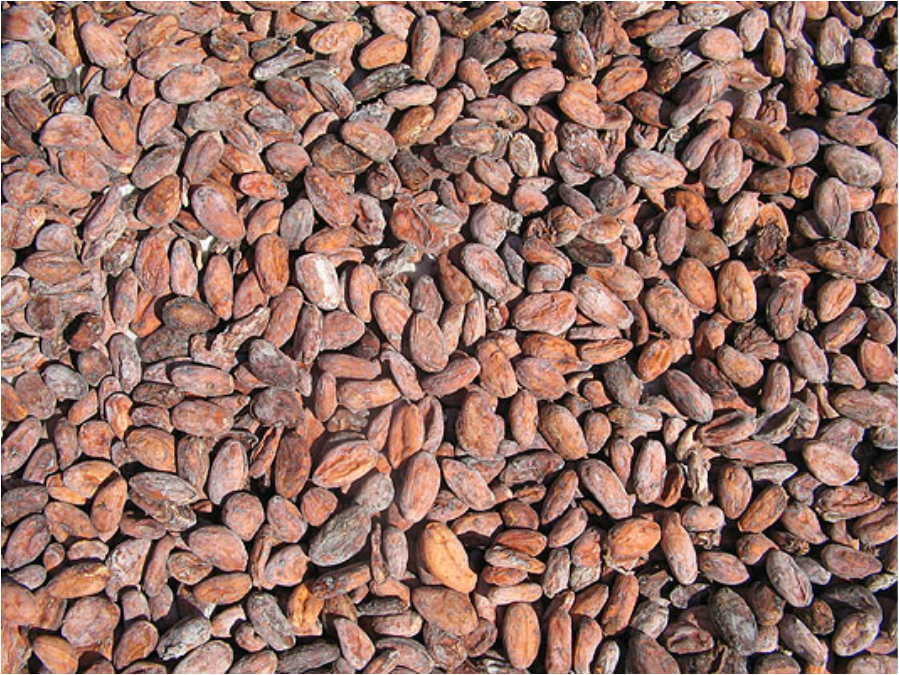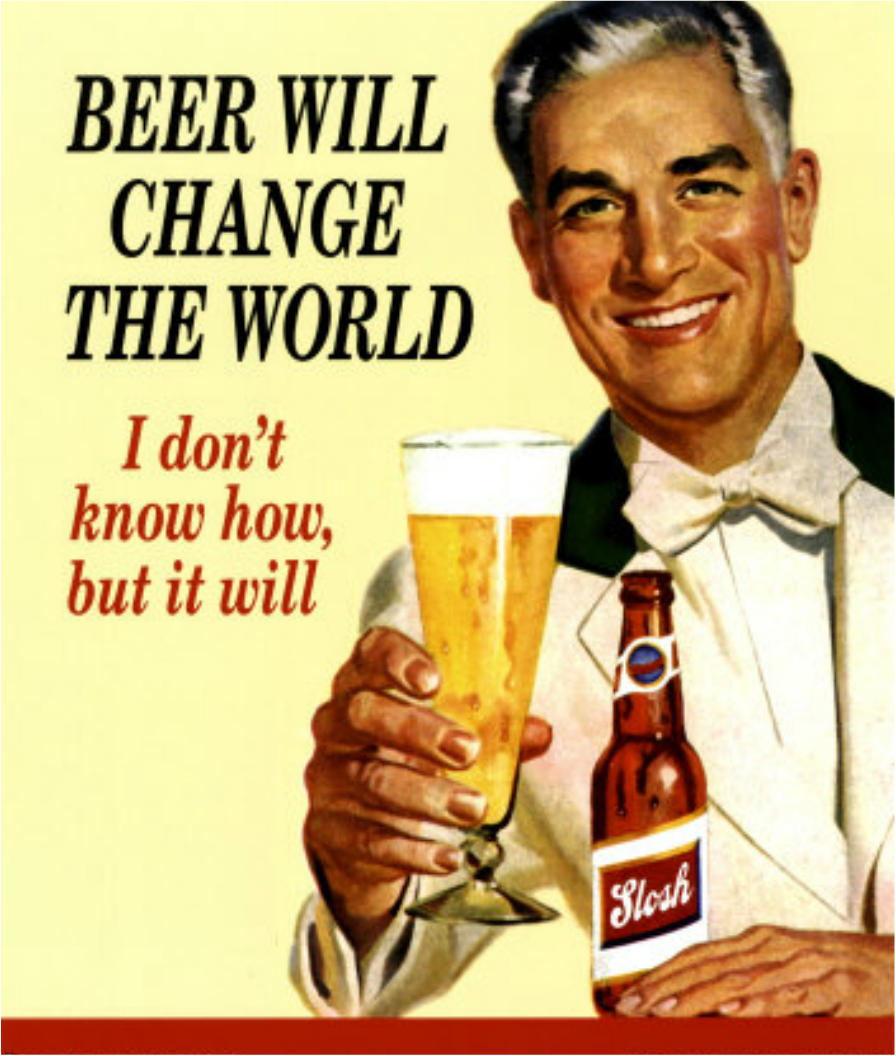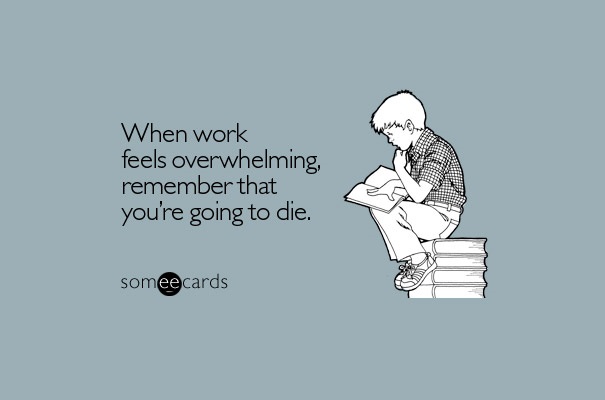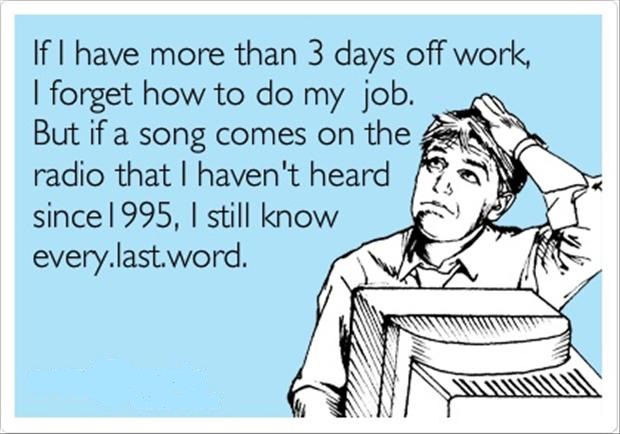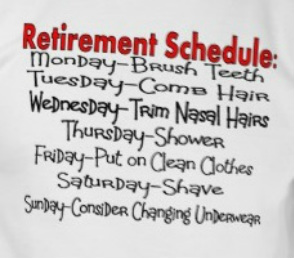DEATH
Death is caused by swallowing small amounts of saliva over a long period of time." George Carlin said that and maybe he's right. One thing we know for sure is that we will all croak at one time or another. As Woody Allen said, " I have no fear or my impending death; I just don't want to be there when it happens." Every man's heart one day beats its final beat. His lungs breathe their final breath.
So what if there's a list of all the benefits of meeting your demise?
Those headaches that kept you awake all night will stop.
Visits to your proctologist will no longer be necessary.
You will no longer travel to Hamilton.
You will no longer worry about how it will all end.
You will realize that some of your marriages were made at the bank.
You will no longer suffer recordings by Justin Beiber, Rihanna or Beyonce.
No more driving in Toronto traffic.
No more annoying phone calls from Carol Culhane.
You will no longer pay the hated HST.
You will have endured your last colonoscopy.
You will no longer listen to sleazeball politicians at election time.
No more annoying Sunday dinners in Mount Hope.
You will no longer waste time thinking about euthanasia in January.
You will no longer wonder if you will be next.
You will no longer travel to Rochester.
You will no longer listen to recordings by James Blunt.
You will no longer see white Walmart whale-women in baggy pants.
You will no longer worry about all that Chinese oil in Fort McMurray.
You can forget about Alzheimer's.
You will no longer think up crazy shit like this in the wee small hours
of the morning and hope you remember it long enough to write it down.
You will no longer listen to that obnoxious female voice at Bell
Canada's voice mail system," Oh, sorry you're having
trouble. Goodbye."
Visits to your proctologist will no longer be necessary.
You will no longer travel to Hamilton.
You will no longer worry about how it will all end.
You will realize that some of your marriages were made at the bank.
You will no longer suffer recordings by Justin Beiber, Rihanna or Beyonce.
No more driving in Toronto traffic.
No more annoying phone calls from Carol Culhane.
You will no longer pay the hated HST.
You will have endured your last colonoscopy.
You will no longer listen to sleazeball politicians at election time.
No more annoying Sunday dinners in Mount Hope.
You will no longer waste time thinking about euthanasia in January.
You will no longer wonder if you will be next.
You will no longer travel to Rochester.
You will no longer listen to recordings by James Blunt.
You will no longer see white Walmart whale-women in baggy pants.
You will no longer worry about all that Chinese oil in Fort McMurray.
You can forget about Alzheimer's.
You will no longer think up crazy shit like this in the wee small hours
of the morning and hope you remember it long enough to write it down.
You will no longer listen to that obnoxious female voice at Bell
Canada's voice mail system," Oh, sorry you're having
trouble. Goodbye."
Actually, some of us have aspirations to live well beyond the three score and ten they talk about in the Scriptures. Think you can make it to 100? George Burns made it and so can you. Here are some clues which, when taken one by one or together, could signal a long and productive life.
Clue #1: How many elderly relatives are on your family tree?
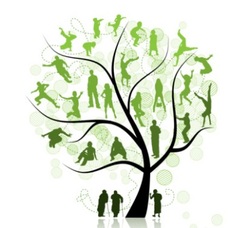
Hell, if I'd known I was going to live this long, I would've taken better care of myself. According to the New England Centenarian study at the Boston University School of Medicine, at least half of all those who reach 100 have a parent, sibling, or grandparent who has also achieved very old age. A 2002 study by the centre's director, geriatrician Thomas Serls, found that male siblings of centenarians have a 17 times greater chance of reaching their 100th birthday than other men born around the same time. Female siblings are 8.5 times more likely to hit 100 than other females also born around the same time. Having siblings, parents.and grandparents who make it to 100 seems to be a much stronger indicator than counting all your cousins or other distant relatives.
Clue #2: How fast and how far can you walk?

University of Pittsburgh researchers crunched numbers from nine different studies including almost 35,000 subjects ages 65 or older. The result is this. For each gait speed increase of 0.1 meters per second came a corresponding 12 percent decrease in the risk of death. The average speed was 3 feet per second (about two miles an hour). Those who walked slower than 2 feet per second (1.36 miles per hour) had an increased risk of dying. Those who walked faster than 3.3 feet per second (2.25 miles per hour) or faster survived longer than would be predicted simply by age or gender. A 2006 report in the Journal of the American Medical Association found that among adults ages 70 to 79, those who couldn't walk a quarter mile were less likely to be alive six years later. They were also more likely to suffer illness and disability before death. An earlier study of men ages 71 to 93 found that those who could walk two miles a day had half the risk of heart attack of those who could walk only a quarter mile or less.
Clue #3: Do you have a lot of people in your life?

Countless studies have found that social isolation is bad for your health while having friends and social engagement is good. One of the more surprising findings in The Longevity Project (a book about an eight-decade study of 1,500 subjects all born around 1910) is that religious women lived longer because of the social connectedness of their faith-based lifestyle. They interact with others, they join committees, and they engage in social outreach such as volunteering at clothing drives and soup kitchens."There was a similar trend among people who had civic engagements, who were active in their communities. Those who volunteered and otherwise stayed connected, whether with families, friends, or coworkers tend to live a longer life" says Leslie R. Martin, a professor at La Sierra University in Riverside, California, who is author of The Longevity Project. We believe that social engagement is a key life-extender.
Clue #4: Are you a woman?

Sorry, fellas. In 2010, there were 80,000 centenarians in America; 85 percent of them were women and only 15 percent were men. It's not entirely clear what's causing the disparity. Theories include the protective role of female sex hormones and menstruation, lower rates of cardiovascular disease for women, and higher smoking rates among men. Men also have higher rates of car accidents and suicide.
The survival gap is gradually narrowing, possibly because women are living lives that are conventionally male in terms of stress and poorer health habits, especially smoking.
The survival gap is gradually narrowing, possibly because women are living lives that are conventionally male in terms of stress and poorer health habits, especially smoking.
Clue #5: Did you have a child after age 35?

It's not the act of bearing a child late in life that extends lifespan, however. Researchers instead believe that being able to conceive and give birth in your late 30's or 40's is probably an indicator that your reproductive system is aging slowly and that the rest of your body is likely to be aging slowly, as well. This is possible evidence that you're a slow ager. Popular wisdom holds that late-life babies are tougher on a mother's aging body. If so, that graying hair mixed with newborn pink or blue reflects a silver lining: According to the New England Centenarian Study, a woman who naturally conceives and bears a child after the age of 40 has a four times greater chance of living to 100 than women who don't. Moms who give birth naturally at 35-plus also make it to 100 in larger numbers than younger counterparts. One bit of good news for men: Those who do reach the century mark are, on average, healthier and more functionally fit than their female counterparts.
Clue #6: When were you born?

A 2011 report by the British Department for Work and Pensions estimated life expectancy for citizens at various ages, providing a snapshot from which Canadians can learn, as well.
A British girl born this year has a one in three chance of living to 100 while a 2011-born boy has a one in four chance. If you're a 20-year-old woman, you have a 26.6 percent chance;
a 20-year-old man has a 19.5 percent chance. The average 50-year-old woman in the U.K. has a 14.6 percent chance of seeing 2061, the year of her diamond-anniversary birthday. Just over one in 10 of her male counterparts will still be around then. And if you're 99 now? You have a whopping 67 percent chance of seeing another year. Growing life-spans give younger people an edge.
A British girl born this year has a one in three chance of living to 100 while a 2011-born boy has a one in four chance. If you're a 20-year-old woman, you have a 26.6 percent chance;
a 20-year-old man has a 19.5 percent chance. The average 50-year-old woman in the U.K. has a 14.6 percent chance of seeing 2061, the year of her diamond-anniversary birthday. Just over one in 10 of her male counterparts will still be around then. And if you're 99 now? You have a whopping 67 percent chance of seeing another year. Growing life-spans give younger people an edge.
Clue #7: Do you worry, but not too much?

It sounds like a punch line: "Be afraid, be very afraid but not too much!" Do you know anyone who thinks the glass is always half-empty who is self-critical to the extreme? According to psychology professor Leslie R. Martin of La Sierra University, so-called "drama-queens" and all those negative personalities who fret about impending doom tend to die sooner. Maybe it's time to lighten up a little.
"A moderate amount of anxiety and worry is good for you," she says. Moderate worriers tend to be less impulsive and they take fewer risks. They have less risky hobbies and they plan ahead for alternatives which may be protective without adding a negative health impact.
"A moderate amount of anxiety and worry is good for you," she says. Moderate worriers tend to be less impulsive and they take fewer risks. They have less risky hobbies and they plan ahead for alternatives which may be protective without adding a negative health impact.
Clue #8: Is your weight normal?

A surprising 2011 Albert Einstein College of Medicine study of 477 adults ages 95 to 112 found that these solid-gold agers had no better health habits overall than a comparison group born at the same time that had been studied in the 1970s. One difference: Those
in long-lived group were much less likely to be obese. Both male and female centenarians
in the study were overweight at about the same rates as those in the shorter-lived group.
But only 4.5 percent of the long-lived men and 9.6 of the women were obese, compared
to 12.1 percent and 16.2 percent, respectively, of the younger-lived controls.
("Normal weight" is a Body Mass Index -- or BMI, a measure of height in proportion to weight -- in the range of 18 to 24; "overweight" is 25 to 30; over 30 is "obese.") This finding echoes other studies showing the greatest risks of death among those who are obese
or underweight at age 65 (BMI under 18.5), compared to those of normal weight or slight overweight. A 2011 study at Loma Linda University in Southern California found that men over age 75 with a BMI over 27.4 lived nearly four years less than those with
a lower BMI. For women over age 75, a BMI over 27.4 led to a two-year shorter lifespan. Studies of centenarians show that men who reach 100 are almost always lean (more so than women). Luckily, this clue is one you can control. "Since you can't be sure
if you'll live to 100, I wouldn't take the chance of ignoring the lifestyle interventions that we know will at least put you in the half the population who die after age 80 -- starting with watching weight and being sure to exercise," says the senior author of the Albert Einstein study, Nir Barzilai, director of the college's Institute for Aging Research.
in long-lived group were much less likely to be obese. Both male and female centenarians
in the study were overweight at about the same rates as those in the shorter-lived group.
But only 4.5 percent of the long-lived men and 9.6 of the women were obese, compared
to 12.1 percent and 16.2 percent, respectively, of the younger-lived controls.
("Normal weight" is a Body Mass Index -- or BMI, a measure of height in proportion to weight -- in the range of 18 to 24; "overweight" is 25 to 30; over 30 is "obese.") This finding echoes other studies showing the greatest risks of death among those who are obese
or underweight at age 65 (BMI under 18.5), compared to those of normal weight or slight overweight. A 2011 study at Loma Linda University in Southern California found that men over age 75 with a BMI over 27.4 lived nearly four years less than those with
a lower BMI. For women over age 75, a BMI over 27.4 led to a two-year shorter lifespan. Studies of centenarians show that men who reach 100 are almost always lean (more so than women). Luckily, this clue is one you can control. "Since you can't be sure
if you'll live to 100, I wouldn't take the chance of ignoring the lifestyle interventions that we know will at least put you in the half the population who die after age 80 -- starting with watching weight and being sure to exercise," says the senior author of the Albert Einstein study, Nir Barzilai, director of the college's Institute for Aging Research.
Clue #9: How long are your telomeres?

What-o-meres?" you ask. Telomeres are protective DNA sequences at the ends
of chromosomes that gradually shorten as cells divide. (Pioneering telomere researcher Elizabeth Blackburn of the University of California at San Francisco compares them to shoelace caps.) Eventually the telomeres become so short that cells stop dividing,
a condition called senescence, creating the effects we recognize as aging in related tissue. Many people who live to 100 have a hyperactive version of an enzyme that rebuilds telomeres. Scientists are still unraveling the key role telomeres seem to play in aging, cancer, and other biological processes, but this much is clear: The longer your telomeres,
the more time you're apt to have left. A 2010 Italian study reported that cancer-free people with shorter telomeres were more likely to develop cancer within ten years than those with longer telomeres, for example. Some studies show that removing chronic stress, butting out the cigarettes, and eating a diet rich in omega-3 fatty acids can improve telomere length. Those centenarians with hyperactive telomere-making apparatus can probably thank their genes, though. New blood tests are now being marketed directly to consumers, purporting to predict longevity based on telomere length. But critics caution that there aren't standards
for measuring telomere length and that there can be such variability in telomeres that it's hard to predict much of anything from
a sample.
of chromosomes that gradually shorten as cells divide. (Pioneering telomere researcher Elizabeth Blackburn of the University of California at San Francisco compares them to shoelace caps.) Eventually the telomeres become so short that cells stop dividing,
a condition called senescence, creating the effects we recognize as aging in related tissue. Many people who live to 100 have a hyperactive version of an enzyme that rebuilds telomeres. Scientists are still unraveling the key role telomeres seem to play in aging, cancer, and other biological processes, but this much is clear: The longer your telomeres,
the more time you're apt to have left. A 2010 Italian study reported that cancer-free people with shorter telomeres were more likely to develop cancer within ten years than those with longer telomeres, for example. Some studies show that removing chronic stress, butting out the cigarettes, and eating a diet rich in omega-3 fatty acids can improve telomere length. Those centenarians with hyperactive telomere-making apparatus can probably thank their genes, though. New blood tests are now being marketed directly to consumers, purporting to predict longevity based on telomere length. But critics caution that there aren't standards
for measuring telomere length and that there can be such variability in telomeres that it's hard to predict much of anything from
a sample.
Clue #10: Are you a positive person?

What's the mechanism at work here? Feeling upbeat about your life means you experience less stress, which in turn affects cortisol levels, which can affect health." Stanford researchers periodically assess 19 different emotions in subjects randomly polled over one week at 5-year intervals. Having more positive emotions than negative ones is associated with living longer. Researchers are firm believers that while "slow agers" clearly exist, there's more to their stories than lucky genes. "There's mounting evidence that genes play a role in longevity,
but genes play a role in almost everything," they say. "They don't express themselves
in vacuums -- there are very complex interactions between genes and lifestyle."
So all that advice on how to live to 100? Can't hurt to heed it.
but genes play a role in almost everything," they say. "They don't express themselves
in vacuums -- there are very complex interactions between genes and lifestyle."
So all that advice on how to live to 100? Can't hurt to heed it.
Quebec moves forward on dying with dignity by tabling controversial legislation
Quebec - Canada - The Quebec government has tabled its controversial right-to-die legislation in the national assembly. A first reading of the bill is taking place today, just before Quebec politicians break for the summer holidays.
The controversial Bill 52 essentially outlines the conditions necessary for someone to get medical assistance to die and spells out the requirements necessary before a doctor can accept. Pictured above is Social Services Minister Veronique Hivon who is also forming a commission on end-of-life care that will be mandated to ensure the legislation is being applied correctly.
The legislation follows a landmark March 2012 report that suggested, in exceptional circumstances, doctors be allowed to help
the terminally ill die if that is what the patient wants. It followed divisive public hearings held across the province in 2010 and 2011.
Euthanasia and assisted suicide are illegal in Canada and the federal government has previously said it won't move to change the Criminal Code. A panel of Quebec experts was convened and came to the conclusion in January that provinces have the legal jurisdiction to legislate in matters of health. The panel also said the Quebec legislation would clarify how acts to end a life wouldn't be considered suicide.
Under the recommendations, patients themselves would have to make the request to a doctor on the basis of unbearable physical or psychological suffering. Two physicians would have to approve the request, which would have to be made in writing. Doctors would not face criminal charges in these circumstances, the report said. Any law should state that the refusal, interruption, abstention from care or the application of a terminal sedative in those circumstances could not be considered a suicide.
The controversial Bill 52 essentially outlines the conditions necessary for someone to get medical assistance to die and spells out the requirements necessary before a doctor can accept. Pictured above is Social Services Minister Veronique Hivon who is also forming a commission on end-of-life care that will be mandated to ensure the legislation is being applied correctly.
The legislation follows a landmark March 2012 report that suggested, in exceptional circumstances, doctors be allowed to help
the terminally ill die if that is what the patient wants. It followed divisive public hearings held across the province in 2010 and 2011.
Euthanasia and assisted suicide are illegal in Canada and the federal government has previously said it won't move to change the Criminal Code. A panel of Quebec experts was convened and came to the conclusion in January that provinces have the legal jurisdiction to legislate in matters of health. The panel also said the Quebec legislation would clarify how acts to end a life wouldn't be considered suicide.
Under the recommendations, patients themselves would have to make the request to a doctor on the basis of unbearable physical or psychological suffering. Two physicians would have to approve the request, which would have to be made in writing. Doctors would not face criminal charges in these circumstances, the report said. Any law should state that the refusal, interruption, abstention from care or the application of a terminal sedative in those circumstances could not be considered a suicide.
Here are five powerful foods that lower your blood pressure
Are you eating enough of these five amazing foods that help reduce your blood pressure? Did you know that stroke and coronary heart disease are on the list of the top three main causes of death in Canada? It's time to take your health seriously so you don't fall victim to stroke or heart disease. According to the National Institute for Health, blood pressure levels of 140/90 mmHg or more can be classified as hypertension.
The worst part about having high blood pressure is that the condition can sometimes be present without any symptoms and before we know it the damage may already be extensive. Serious problems that have been associated with high blood pressure include kidney failure, heart attack, heart failure and stroke. Race, family history, tobacco use, sedentary lifestyle, diet, binge drinking,
and stress levels all play a part. Chronic conditions such as sleep apnea, diabetes and high cholesterol levels can also precipitate the development of hypertension.
Sp you think you need potentially dangerous drugs to control and reduce your blood pressure? Controlling blood pressure levels could be as simple as modifying your lifestyle and eating healthier foods. Many of the items on the grocery shelves should remain there. If you are a smoker, quit. If you drink heavily, try to practice self-control. At work, take the stairs instead of the elevator. And if you have been obsessed with sweet, sugary foods as well as processed fast-food meals, modify your eating habits as well. Learn to eat the right kinds of food before it's too late.
Are you eating enough of these five amazing foods that help reduce your blood pressure? Did you know that stroke and coronary heart disease are on the list of the top three main causes of death in Canada? It's time to take your health seriously so you don't fall victim to stroke or heart disease. According to the National Institute for Health, blood pressure levels of 140/90 mmHg or more can be classified as hypertension.
The worst part about having high blood pressure is that the condition can sometimes be present without any symptoms and before we know it the damage may already be extensive. Serious problems that have been associated with high blood pressure include kidney failure, heart attack, heart failure and stroke. Race, family history, tobacco use, sedentary lifestyle, diet, binge drinking,
and stress levels all play a part. Chronic conditions such as sleep apnea, diabetes and high cholesterol levels can also precipitate the development of hypertension.
Sp you think you need potentially dangerous drugs to control and reduce your blood pressure? Controlling blood pressure levels could be as simple as modifying your lifestyle and eating healthier foods. Many of the items on the grocery shelves should remain there. If you are a smoker, quit. If you drink heavily, try to practice self-control. At work, take the stairs instead of the elevator. And if you have been obsessed with sweet, sugary foods as well as processed fast-food meals, modify your eating habits as well. Learn to eat the right kinds of food before it's too late.
1. Artichokes
The use of artichokes has been implicated in the lowering of cholesterol levels in the blood. Since hypercholesterolemia is one
of the risk factors for high blood pressure, this information is actually good news. Three clinical trials conducted separately
by Dr. Barbara Wider supports this fact. In Cochrane Database of Systemic Reviews’ October 2009 issue, where the result of the study was published, it was shown that patients who were diagnosed with hypercholesterolemia and given Artichoke leaf extract exhibited a decrease in their blood cholesterol levels.
Artichokes taste amazing steamed (generally steam for about 1 hour) and then dip each piece into a mixture of olive oil, grass-fed butter, and garlic. Deliciosa!
The use of artichokes has been implicated in the lowering of cholesterol levels in the blood. Since hypercholesterolemia is one
of the risk factors for high blood pressure, this information is actually good news. Three clinical trials conducted separately
by Dr. Barbara Wider supports this fact. In Cochrane Database of Systemic Reviews’ October 2009 issue, where the result of the study was published, it was shown that patients who were diagnosed with hypercholesterolemia and given Artichoke leaf extract exhibited a decrease in their blood cholesterol levels.
Artichokes taste amazing steamed (generally steam for about 1 hour) and then dip each piece into a mixture of olive oil, grass-fed butter, and garlic. Deliciosa!
2. Bananas
A study published in The New England Journal of Medicine says that incorporating bananas in your day-to-day meals can actually cut stroke-related deaths by as much as 40 percent. A 1997 study at Johns Hopkins University recommended eating at least five bananas daily to achieve the desired effect of loweing elevated blood pressure levels. However, a study conducted by Indian researchers at the Kasturba medical college revealed that people who eat two bananas a day for one whole week can lower their blood pressure levels by 10 percent.
Bananas are rich in potassium which is responsible proper functioning of the heart working with sodium to maintain balance of the body’s fluids which is an important factor in the regulation of blood pressure.
A study published in The New England Journal of Medicine says that incorporating bananas in your day-to-day meals can actually cut stroke-related deaths by as much as 40 percent. A 1997 study at Johns Hopkins University recommended eating at least five bananas daily to achieve the desired effect of loweing elevated blood pressure levels. However, a study conducted by Indian researchers at the Kasturba medical college revealed that people who eat two bananas a day for one whole week can lower their blood pressure levels by 10 percent.
Bananas are rich in potassium which is responsible proper functioning of the heart working with sodium to maintain balance of the body’s fluids which is an important factor in the regulation of blood pressure.
3. Beets
A research study conducted by scientists from Barts and The London School Medicine revealed that simply drinking one 500 ml glass of beetroot juice each day can produce astounding health benefits, especially to the heart. Beetroot juice has been found to lower high blood pressure levels. Professors Amrita Ahluwalia and Ben Benjamin, from the William Harvey Research Institute
and Peninsula Medical Centre, respectively, led the research efforts, which revealed that the consumption of dietary nitrate that
is found in beetroot has blood pressure lowering effects in as fast as 1 hour after ingestion, with the effect lasting for up to 24 hours. The result of the study was published in the March 2008 issue of Hypertension.You can try beetroot juice, or also try baked beets sliced on salads or as a side dish along with your dinner.
A research study conducted by scientists from Barts and The London School Medicine revealed that simply drinking one 500 ml glass of beetroot juice each day can produce astounding health benefits, especially to the heart. Beetroot juice has been found to lower high blood pressure levels. Professors Amrita Ahluwalia and Ben Benjamin, from the William Harvey Research Institute
and Peninsula Medical Centre, respectively, led the research efforts, which revealed that the consumption of dietary nitrate that
is found in beetroot has blood pressure lowering effects in as fast as 1 hour after ingestion, with the effect lasting for up to 24 hours. The result of the study was published in the March 2008 issue of Hypertension.You can try beetroot juice, or also try baked beets sliced on salads or as a side dish along with your dinner.
4. Cocoa
A study conducted by researchers from Germany’s University Hospital of Cologne revealed that cocoa can significantly lower high blood pressure levels. Study results were published in the Archives of Internal Medicine. The beneficial heart effects of cocoa are attributed to its flavonoid content, specifically procyanids. Because cocoa is most commonly found in chocolate, people falsely assume that eating a lot of chocolate could be good for the health. Keep in mind that cocoa in chocolates have undergone a lot of processing, and it has been mixed with loads of sugar. The best way to take advantage of the health benefits offered by cocoa is to choose raw cacao which is good for the heart, the brain and the liver. Raw cocao nibs go great in those smoothies you like to make for everyone. Use organic cocoa powder in your smoothies or use homemade hot cocoa sweetened with stevia instead of sugar.
A study conducted by researchers from Germany’s University Hospital of Cologne revealed that cocoa can significantly lower high blood pressure levels. Study results were published in the Archives of Internal Medicine. The beneficial heart effects of cocoa are attributed to its flavonoid content, specifically procyanids. Because cocoa is most commonly found in chocolate, people falsely assume that eating a lot of chocolate could be good for the health. Keep in mind that cocoa in chocolates have undergone a lot of processing, and it has been mixed with loads of sugar. The best way to take advantage of the health benefits offered by cocoa is to choose raw cacao which is good for the heart, the brain and the liver. Raw cocao nibs go great in those smoothies you like to make for everyone. Use organic cocoa powder in your smoothies or use homemade hot cocoa sweetened with stevia instead of sugar.
5. Garlic
Researchers from South Australia’s University of Adelaide have conducted studies which provide solid proof that the consumption of garlic can indeed help lower elevated blood pressure levels. Garlic supplements in powder form were given and results revealed that it produced a reduction in systolic blood pressure. Garlic has been known all over the world as a very important herb, especially with its heart-protecting capabilities. It helps lower blood cholesterol levels and prevents blood from forming clots (which could lead to heart attack and stroke).
Furthermore, the Proceedings of the National Academy of Sciences journal has published the results of a laboratory test showing how garlic juice can lead to a decrease in blood pressure levels. Eating the equivalent of 2 cloves of garlic each day can significantly contribute to the health of the heart.
by Frank Mangano
Consumer Health Advocate
Author of the popular book: Blood Pressure Miracle
Beer drinkers rejoice:
Your favourite brew may be healthier than you think. For years, wine drinkers have indulged without guilt while reveling in the news that red wine can help protect against heart disease. Recent research shows that beer can also be good for your overall health and well-being. Beer can reduce the risk of broken bones and the onset of heart disease by thinning your blood. Beer can also help ward off diabetes and mental decline. Beer can also increase longevity and make it easier to pick up women at Jingles. My doctor said men over 69 should have at least one a day.
Your favourite brew may be healthier than you think. For years, wine drinkers have indulged without guilt while reveling in the news that red wine can help protect against heart disease. Recent research shows that beer can also be good for your overall health and well-being. Beer can reduce the risk of broken bones and the onset of heart disease by thinning your blood. Beer can also help ward off diabetes and mental decline. Beer can also increase longevity and make it easier to pick up women at Jingles. My doctor said men over 69 should have at least one a day.
Anne and Steve Martin are parents!
Los Angeles - America - December 14 - 2012 -There’s a first time for everything. For Steve Martin, that means becoming a father at 67. The actor and his 41-year-old wife, Anne Stringfield, are new parents. Page Six was first to report the baby news, noting the the child was born back in December. “They’ve had a baby and how they kept it a secret nobody knows. Steve’s very private,”
a source told the gossip column. “They are thrilled. They worked hard to have the baby.”
Martin and Stringfield have a history of being hush-hush about big events in their lives. When they tied the knot in 2007, they invited 75 guests to a party at their Los Angeles home and then they surprised everyone by exchanging vows! Although it was quiet affair, it was certainly star-studded. Saturday Night Live honcho Lorne Michaels was his best man and guests included Tom Hanks, Diane Keaton, Eugene Levy, and Carl Reiner. Stringfield is a writer and former staffer for The New Yorker magazine.
She and Martin started dating a decade ago and she admits her husband may have been alluding to their new bundle of joy in a recent post on Twitter. When a fan asked, "Hey Steve. Do you ever think about having children?" The funnyman shot back, “Can’t stand ’em.” His most recent flick, “The Big Year” came out in 2011, and “It’s Complicated” and “The Pink Panther 2” were released in 2009. We suspect he’s also working on some children’s songs...at least around the house.
a source told the gossip column. “They are thrilled. They worked hard to have the baby.”
Martin and Stringfield have a history of being hush-hush about big events in their lives. When they tied the knot in 2007, they invited 75 guests to a party at their Los Angeles home and then they surprised everyone by exchanging vows! Although it was quiet affair, it was certainly star-studded. Saturday Night Live honcho Lorne Michaels was his best man and guests included Tom Hanks, Diane Keaton, Eugene Levy, and Carl Reiner. Stringfield is a writer and former staffer for The New Yorker magazine.
She and Martin started dating a decade ago and she admits her husband may have been alluding to their new bundle of joy in a recent post on Twitter. When a fan asked, "Hey Steve. Do you ever think about having children?" The funnyman shot back, “Can’t stand ’em.” His most recent flick, “The Big Year” came out in 2011, and “It’s Complicated” and “The Pink Panther 2” were released in 2009. We suspect he’s also working on some children’s songs...at least around the house.
As the poets have mournfully sung,
Death takes the innocent, young,
Those rolling in money,
The screamingly funny,
And those who are very well hung.
(by W.H. Auden)
Death takes the innocent, young,
Those rolling in money,
The screamingly funny,
And those who are very well hung.
(by W.H. Auden)
DEATH










